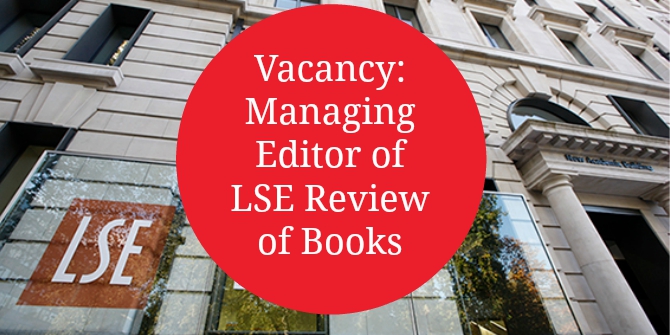 Learning takes place in a variety of settings as an ongoing process of skills and knowledge development in changing contexts. With the growing popularity of technology-enhanced learning initiatives, Cristóbal Cobo makes the case for more flexible methods for skills and knowledge recognition. The challenge is to create more versatile ways of recognizing uncertified forms of learning – both for formal qualifications of informal learning as well as wider social recognition of uncertified knowledge.
Learning takes place in a variety of settings as an ongoing process of skills and knowledge development in changing contexts. With the growing popularity of technology-enhanced learning initiatives, Cristóbal Cobo makes the case for more flexible methods for skills and knowledge recognition. The challenge is to create more versatile ways of recognizing uncertified forms of learning – both for formal qualifications of informal learning as well as wider social recognition of uncertified knowledge.
Drawing on comparative and historical analyses of education, sociologist Randall Collins argues, “The expansion of education can contribute, under certain conditions, to the aggregate economic well-being on the population” (2000, p.237). It’s hard to disagree with that statement, but as always – the devil is in the details and those details refer to ongoing, rapidly changing conditions.
Take for instance, the credentialization of knowledge. Between the 14th and 17th centuries universities faced extreme bureaucratization. Collins highlights how this circumstance created a “credential inflation”, which affected the trustworthiness of universities at the time:
There have been several episodes of expansion of universities [in Europe], with accompanying formalization of examinations sequences, interspersed with periods when the demand for education collapsed in favour of informal alternatives to schooling (…) Between 1300 and 1500 half of all university foundations were failure. The market for educational credentials was expanding explosively, but at the same time such credentials were flooding the market, raising risk of failure and losing its former prestige (…) By the Enlightenment period of the 1700s, in the eyes of self-conscious progressive intellectuals and educators all over Europe, the university system was a medieval anachronism best left to die on the vine (…)
The so-called “inflation of educational credentials” also came after the rapid European expansion of higher education around 1970. The inflation of educational credentials differs from inflation of a monetary currency; printing more money is relatively cheap, but minting new degree-holding persons requires a huge apparatus of teachers, administrators, testers, buildings, etc. While monetary inflation reduces the value of currency, credential inflation reduces the value of the college degree. Because so many people have it and/or are getting it, the degree qua degree is giving up its scarcity, and thus its relative value. There is no sign whatsoever that runaway credential inflation is about to slow down any time soon. The next couple of decades are likely to demand an increasing credentialization expected to escalate still further (Collins, 2000 and Scanzoni, 2005). Trow (as early as 1974) with visionary clarity foresaw that higher education was going to face a process of expansion and massification. He described after World War II only the elite had access to education (0-15% of population), later a larger portion (16-50%), subsequently, with information technologies becoming a vehicle for universal access he predicted a “universal higher education” (with more than 50% of the population).
Though, as a large number of authors pointed out (Nonaka, Polanyi, Wenger, Benett, Freire, among others) learning does not only take place in formal settings. The claim for lifelong learning should not be understood as hanging around at University for ever but “learning to learn” as an ongoing process of skills and knowledge development in changing contexts. Colardyn and Bjornavold, (2004) explained that validation of non-formal and informal learning become a key aspect. Lifelong learning requires that learning outcomes from different settings and contexts can be linked together. “As long as learning, skills and competences acquired outside formal education and training remain invisible and poorly valued the ambition of lifelong learning cannot be achieved,” they added.
Nowadays, we are living times where (almost) everyone seems to be dazzled by flashy style of technology-enhanced learning initiatives, such as Coursera, Udacity or Edx (now with “local” players in Germany or Brazil) but also Khan Academy, TED-Ed and a growing number of lifelong learning initiatives (see the Edupunks’ Guide). Instead of an over-bureaucratization of these learning initiatives (some more promising than others), and as Colardyn and Bjornavold proposed, more flexible methods for skills and knowledge recognition are required (i.e. signature track, skills passports, competency based credentials, independent examiners, portfolios, open badges, etc.).
Image Source http://www.cedefop.europa.eu/EN/Files/3048_en.pdf
As the illustration shows the challenge is to create more versatile forms of recognizing (and making visible) uncertified forms of learning (informal or non-formal). It is understandable that this flexibility might not be applicable to all the activities and professions (I wouldn’t want to fly with a DIY pilot, for instance). However, there is still a lack of research exploring the extent to which these more flexible models of certification are acknowledged by employers. Interestingly, the recent report published by Department for Business, Innovation and Skills: The Maturing of the MOOC (pdf) suggest that concerning MOOCs, “In the UK environment, the accreditation issue is not as pressing” (p.79) but this lack of interest is not applicable in all contexts. There is much to explore in this area:
- Formal qualification of informal learning: In 2013 Coursera started offering ‘signature track’ services to earn a verified certificate. In other words, a soft certification validated by identity verification (proof of ID and unique typing pattern) as well as sharable course records (with employers as previously done with Yahoo!, for instance). Now, Coursera has gone further widening the field providing “official” verifiable electronic certificate by offering more academically rigorous credit-bearing versions (which include a fee). Here, the American Council on Education’s College Credit Recommendation Service has evaluated and recommended and accredit some of the non-traditional courses offered by Coursera.
- Social (peers-based) recognition of uncertified knowledge: A badge is a symbol or indicator of an accomplishment, skill, competency, or interest. The Mozilla Foundation has promoted the adoption of online Open Badges (likewise DIY.org) that can be used to represent online and offline achievements, communicate successes, and set goals. These Open Badges can support learning that happens beyond traditional classrooms (today particularly relevant for promoting Computer Science’s skills in UK schools). Badges can illustrate a wide set of achievements providing evidence that be shown in the “places” (or spaces) that matter. Similarly, LinkedIn invites users to endorse people’s skills.
The cases suggest different equivalencies and currencies: while US ACE CREDIT College Credit is providing formal accreditation, the Open Badges initiative is promoting a greater social awareness and recognition of skills.
However, the bottom line is that conditions have changed (i.e. progressive mobility worldwide, as well as the increasing need for recognition of migrants’ qualifications). While some authors warn about the risky “inflation of educational credentials” others go even further claiming that “The university has already lost any claim to monopoly over the provision of higher education” (Duke, 1999). The initiatives described here are still in an embryonic stage but at the same time are promising in terms of new possibilities for more flexible tools and, as @daveowhite suggests, they provide new currencies that can redesigning the economy of talent (find more in UNESCO UIL or the EU ESCO).
Note: This article gives the views of the author, and not the position of the Impact of Social Science blog, nor of the London School of Economics. Please review our Comments Policy if you have any concerns on posting a comment below.
Cristóbal Cobo (@cristobalcobo) is a research fellow at the Oxford Internet Institute at the University of Oxford. He coordinates research on open knowledge initiatives, emergent learning practices and almetrics. Cristóbal is an active promoter of open access. Further information: blogs, presentations, talks.









4 Comments